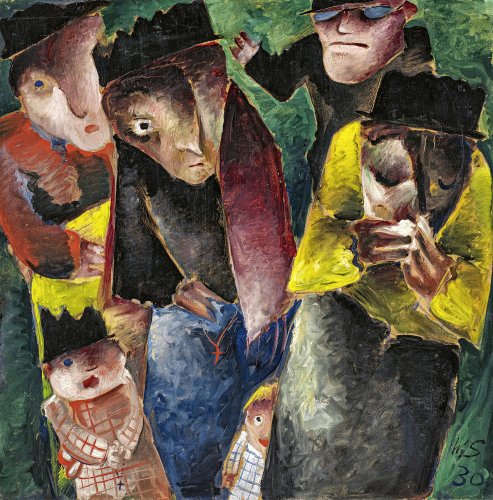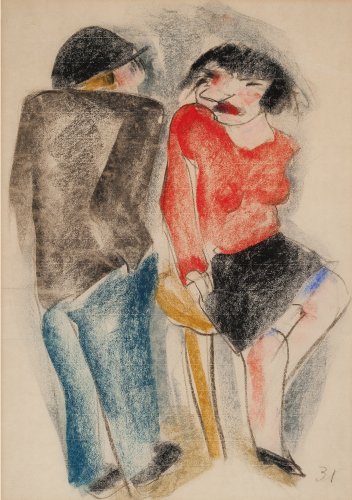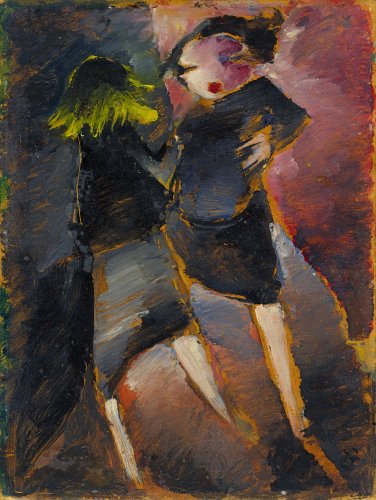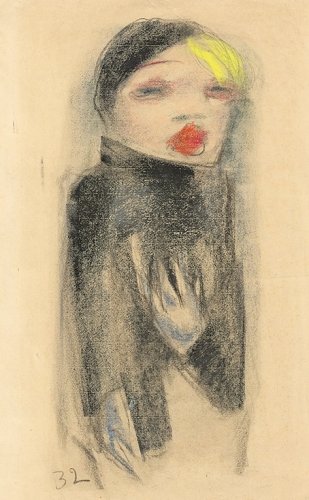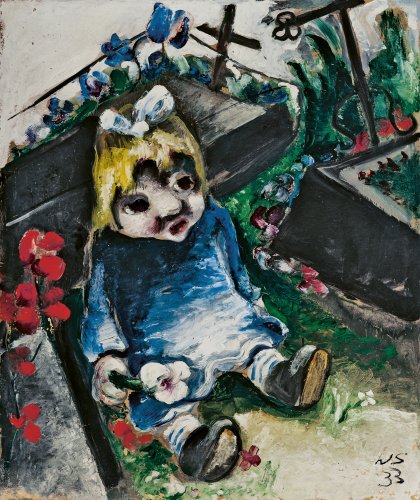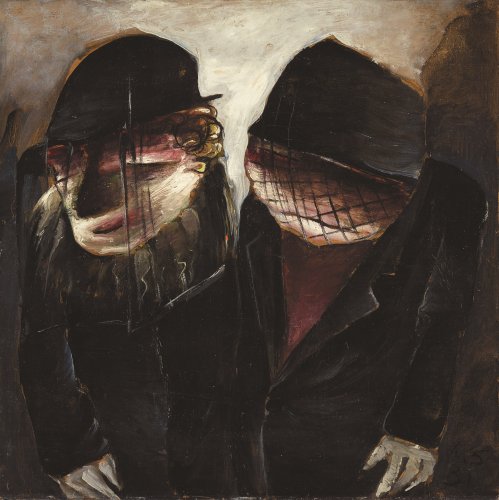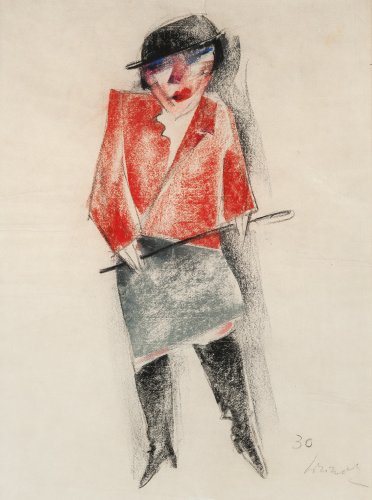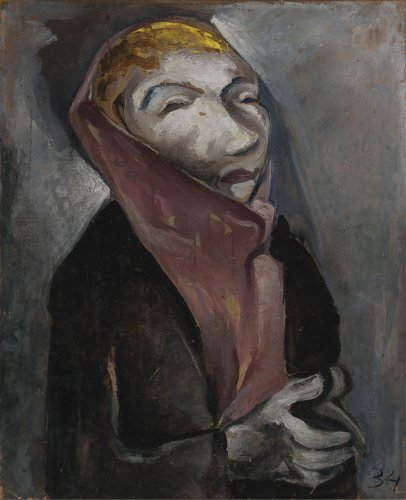‘Scholz is essential...
because he confronts issues of our time that concern us all, and because he really takes formal risks.’ These qualities, ascribed by a critic to the Berlin painter Werner Scholz (1898–1982), impress us today. Scholz devoted himself expressively and empathetically to the lives of the petit bourgeoisie or demi-monde and looked at the darker side of the interwar years in Germany. His protagonists are the destitute and grieving, refugees and the ones left behind – dignified figures with insistent presence.
Around 1930 Werner Scholz was seen as a promising newcomer thanks to his strikingly stylised compositions; progressive galleries showed his work, and important museums acquired it. Proscribed by the National Socialists as ‘degenerate’ in 1937, Scholz withdrew to the Tirol in 1939. His Berlin studio was hit by a bomb in 1944, and most of the pictures hidden there were destroyed. The exhibition The Weight of Time takes a look at what could be saved and presents the artist's early work in Hamburg for the first time . For Scholz is essential to our time as well.
The exhibition is accompannied by a catalogue. The Freie Akademie der Künste Hamburg presents the artist's later work in the exhibition Werner Scholz. In Situ – Industry / Landscape from 12 February to 17 March 2024.

